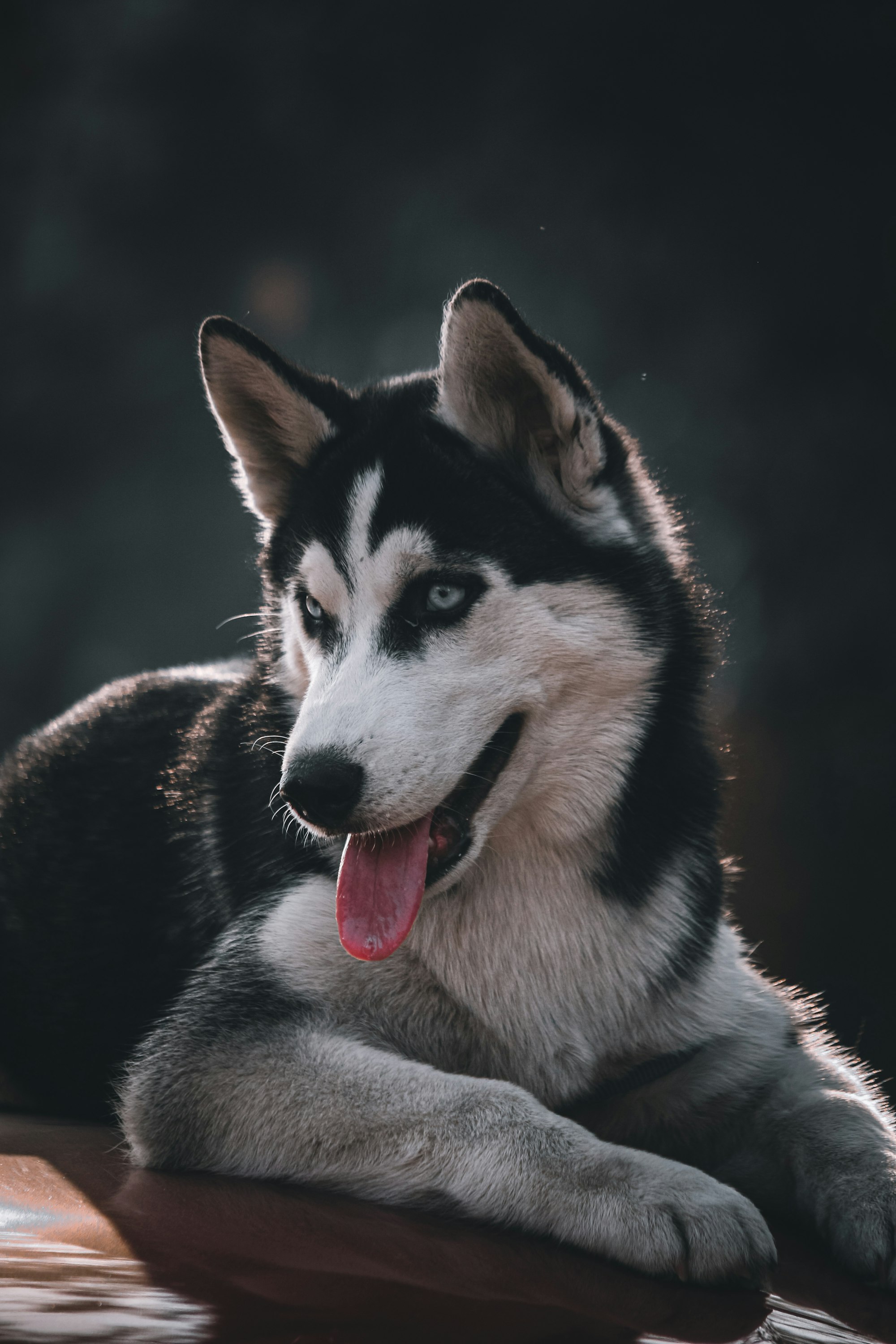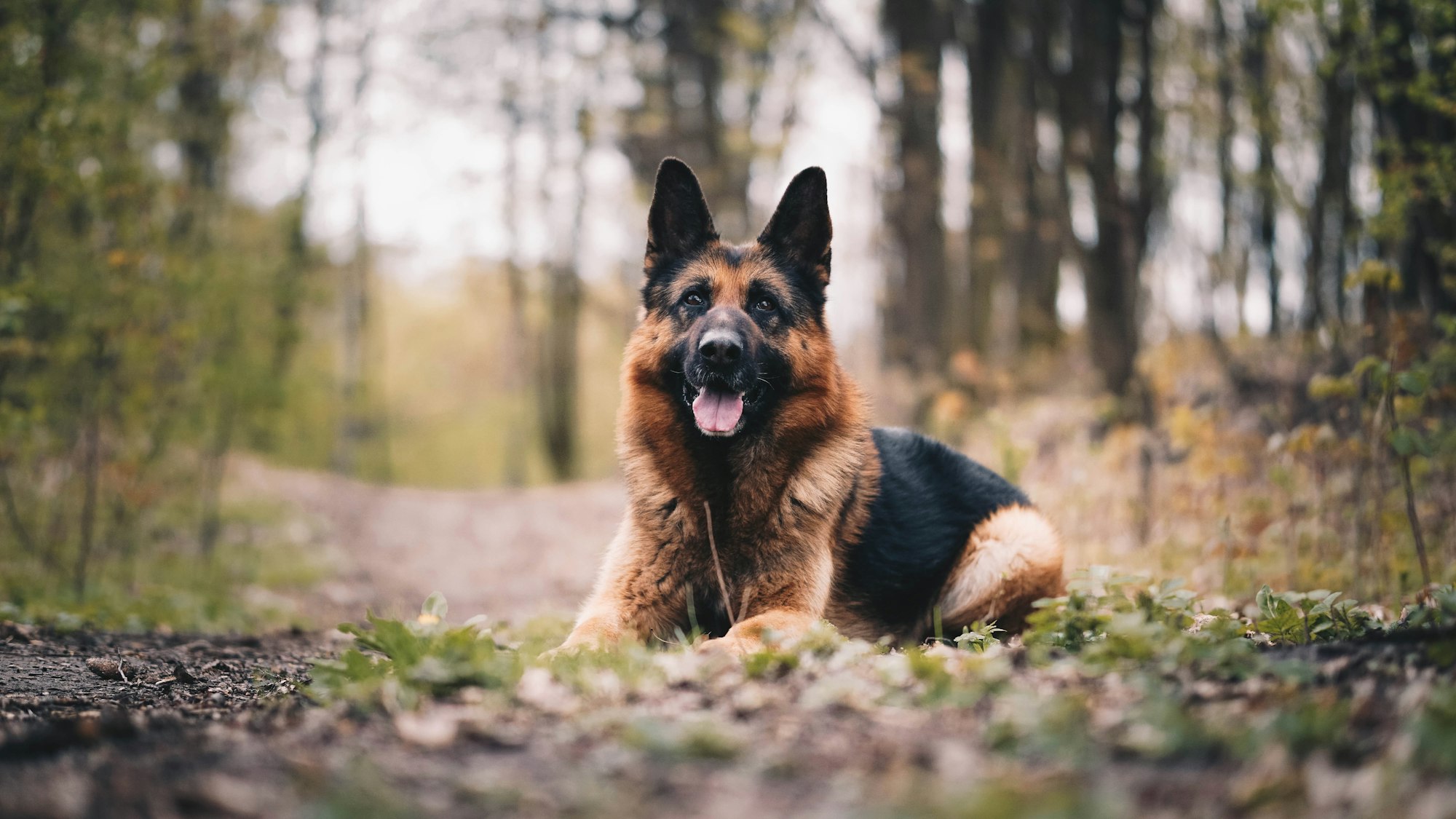German Shepherds and Huskies are two popular dog breeds known for their distinct physical characteristics, temperament, and personalities. Understanding the differences between these breeds can help you make an informed decision when choosing a furry companion.
Secure and Enhance Your Dog's Life with Fi Dog Collar
Whether you're drawn to the disciplined charm of a German Shepherd or the vibrant spirit of a Siberian Husky, ensuring they receive the best care is essential. Enhance your beloved pet's well-being with the Fi Dog Collar, featuring state-of-the-art GPS tracking and geofence capabilities.
Keep your active companion safe and monitor their health effectively with the intuitive Fi app. Don’t miss out—use code HUSKY20 for $20 off your purchase today, and give your dog the freedom to explore while keeping peace of mind.
Characteristics of Each Dog
When it comes to the physical characteristics of German Shepherds and Huskies, there are some striking differences that set them apart. In this section, we'll take a closer look at these two breeds and what makes them unique. From the German Shepherd's strong build and regal stance to the Husky's sleek and energetic appearance, each sub-section will delve into the distinct physical features that define these beloved dog breeds. So, let's dive in and explore the fascinating world of German Shepherds and Huskies!
| Characteristics | Husky | German Shepherd |
| Physical Appearance | Medium-sized, athletic build, thick coat, almond-shaped eyes | Large-sized, muscular build, thick double coat, erect ears |
| Temperament | Friendly, outgoing, independent | Loyal, confident, trainable |
| Training and Intelligence | Average intelligence, can be stubborn | Highly intelligent, eager to learn and follow commands |
| Exercise Needs | High energy, requires daily exercise and mental stimulation | High energy, needs regular exercise and training |
| Grooming | Regular brushing, sheds heavily twice a year | Regular brushing, sheds moderately throughout the year |
| Compatibility with Families | Good with families, including children | Good with families, protective of children |
| Compatibility with Other Pets | May have a strong prey drive, supervision may be necessary | Can get along well with other pets with proper socialization |
| Common Health Issues | Prone to hip dysplasia, eye problems, and skin issues | Prone to hip dysplasia, elbow dysplasia, and allergies |
Huskies and German Shepherds have some similarities, but they also have distinct differences in appearance, temperament, intelligence, exercise needs, grooming requirements, compatibility with families and other pets, and common health issues.

German Shepherd vs. Siberian Husky: Temperament & Personality
| Attributes | German Shepherd | Siberian Husky |
|---|---|---|
| Loyalty | Highly loyal to their family | Loyal but may have an independent streak |
| Trainability | Highly trainable and eager to learn | Intelligent but can be stubborn at times |
| Socialization | Can be aloof with strangers but good with family | Friendly and sociable with both humans and other animals |
| Protectiveness | Strong protective instincts; great as guard dogs | Less protective; more likely to greet strangers than to guard |
| Energy Level | High energy, needs regular exercise | High energy, requires regular and vigorous exercise |
| Playfulness | Playful, especially as puppies | Very playful and can be mischievous |
| Adaptability | Adaptable to various living conditions but needs space to move | Best suited for cooler climates; can adapt but need sufficient exercise |
Training and Intelligence
When it comes to training and intelligence, German Shepherds and Huskies each bring their unique strengths to the table. Discover how these two breeds showcase their intelligence in different ways, and gain insights into the training methods that work best for each. Unleash the capabilities of these remarkable canines and uncover the fascinating world of German Shepherd and Husky training.
| Attributes | German Shepherd | Siberian Husky |
|---|---|---|
| Intelligence | Ranked as one of the most intelligent breeds; quick learners | Smart but can be independent thinkers; sometimes choose to ignore commands |
| Trainability | Easily trainable due to their high intelligence and eagerness to please | Trainable but require patience due to their independent nature |
| Focus | Highly focused, especially when trained for specific tasks | Can be easily distracted, especially if something is more interesting than the task at hand |
| Consistency | Consistent in following commands once trained | May exhibit occasional stubbornness, requiring consistent reinforcement |
| Best Training Methods | Positive reinforcement, early socialization, and obedience training | Positive reinforcement combined with patience and consistency |

Exercise and Activity Level
Looking to compare the exercise and activity levels of German Shepherds and Huskies? Get ready to dive into the energetic world of these two breeds. In this section, we'll explore the differences in exercise needs and activity preferences between German Shepherds and Huskies.
| Attributes | German Shepherd | Siberian Husky |
|---|---|---|
| Energy Level | High energy; require regular and vigorous exercise | Very high energy; known for their stamina and endurance |
| Daily Exercise Needs | 1 to 2 hours of physical activity; including walks, play, and training sessions | 1.5 to 2 hours, preferably more; they love long runs and play sessions |
| Exercise Type | Fetching, herding, obedience training, agility courses, and protection work | Running, pulling sleds, agility, and play that allows them to use their intelligence |
| Activity Level Indoors | Moderate; can be calm indoors if properly exercised | Moderate to active; can become destructive if not exercised adequately |
| Suitability for Active Owners | Excellent; thrive with active owners who can meet their exercise needs | Excellent; require an owner who can handle their stamina and need for activity |
Grooming and Shedding
Wondering how much grooming and shedding come with owning a German Shepherd or a Husky? To understand more about shedding of the siberian husky, you can read more.
| Attributes | German Shepherd | Siberian Husky |
|---|---|---|
| Shedding | Year-round with heavier shedding seasonally (often referred to as "blowing their coat") | Year-round with two annual heavy shedding seasons, usually in spring and fall |
| Grooming Frequency | 2-3 times a week to remove dead hair and prevent matting; more frequently during heavy shedding periods | 2-3 times a week; daily during shedding seasons to manage the volume of loose fur |
| Coat Type | Double-coated; dense outer coat and soft undercoat | Double-coated; medium-length straight top coat and dense undercoat |
| Bathing | Every few months or as needed; over-bathing can strip essential oils | Every few months or when dirty; infrequent baths help maintain their natural oil balance |
| Common Grooming Challenges | Mats and tangles in the undercoat; potential for ear infections if not cleaned regularly | Heavy shedding can lead to mats if not brushed regularly; potential for buildup of ice or snow in their fur in winter |
Common Health Issues
When it comes to the health of our furry friends, German Shepherds and Huskies face their own unique challenges. In this section, we'll explore common health issues that affect these breeds. From genetic predispositions like hip dysplasia to specific ailments, we'll uncover what every owner should be aware of.
| Attributes | German Shepherd | Siberian Husky |
|---|---|---|
| Hip Dysplasia | Common; a genetic condition where the hip joint doesn't fit into the hip socket properly | Less common than in German Shepherds, but still a potential concern |
| Elbow Dysplasia | Common; a condition where the elbow joint grows abnormally | Rare |
| Degenerative Myelopathy | Potential concern; a progressive spinal cord disorder leading to paralysis | Rare |
| Eye Issues | Possible concerns include cataracts and progressive retinal atrophy | Common issues include cataracts and corneal dystrophy |
| Other Concerns | Gastric torsion (bloat), Von Willebrand's Disease (a bleeding disorder) | Uveodermatologic Syndrome (a rare autoimmune disorder affecting the skin and eyes), Zinc Deficiency |
Facts About German Shepherd vs Husky:
✅ German shepherds are taller and heavier than huskies, with a stockier build.
✅ German shepherds come in a range of colors, with more black variations, while huskies have more white in their usual colors.
✅ German shepherds are known for their guarding behavior and suspicion of strangers, while huskies are generally friendly and vocal.
✅ German shepherds require time spent with their family to deepen bonds and take time to warm up to strangers, while huskies naturally thrive with human company and are friendly, even with children.
✅ German shepherds are prone to arthritis, hip dysplasia, and bloat, while huskies are prone to cataracts, hip dysplasia, and hypothyroidism.
Frequently Asked Questions
What are the key differences between German Shepherds and Siberian Huskies?
German shepherds and Siberian huskies have several key differences. German shepherds are taller and heavier with a stockier build, while huskies are medium-sized working dogs. German shepherds have a variety of coat types, while huskies have a double coat with a dense undercoat and long topcoat. German shepherds come in a range of colors, including blue, red cross, red and white, and black and silver variations. Huskies, on the other hand, have more white in their usual colors, such as gray and white and black and white.
What is the temperament of German Shepherds and Huskies?
German shepherds are known for their guarding behavior and suspicion of strangers. They are loyal, intelligent, and loving with their family but may take time to warm up to outsiders. Huskies, on the other hand, are generally friendly and vocal and like to talk. They have high energy levels and can be stubborn. Huskies are naturally friendly, even with children, while German shepherds require deepening bonds and time spent with their family to develop strong attachments.
How do German Shepherds and Huskies differ in terms of social needs?
German shepherds require time spent with their family to deepen bonds and thrive on human interaction. They may be suspicious of strangers and take time to warm up to new people. Huskies, on the other hand, have a more sociable nature and enjoy human company. They are naturally friendly and have a higher tolerance for being around unfamiliar people.
What type of training is suitable for German Shepherds and Huskies?
German shepherds require firm yet gentle training methods. They are intelligent and can excel in obedience training. With the right approach, they can be well-behaved and obedient. Huskies, on the other hand, have a more independent streak and may require consistent training with positive reinforcement. They can be stubborn at times, so patience and firmness are key in their training.
What are some historical roles of German Shepherds and Huskies?
German shepherds were originally bred to herd sheep but later became popular as police and military dogs. They have a history of working alongside law enforcement as police dogs or serving as search and rescue dogs. Huskies, on the other hand, have a rich history as sled dogs among the Chukchi tribe in Siberia. They were known to be used for transportation and even slept with the tribe's children to keep them warm in the cold climate.
What are the common health issues for German Shepherds and Huskies?
German shepherds are prone to arthritis, hip dysplasia, and bloat. These health issues can affect their mobility and overall well-being. Huskies, on the other hand, are prone to cataracts, hip dysplasia, and hypothyroidism. Regular veterinarian check-ups and proper care can help manage and prevent these health issues in both breeds.

